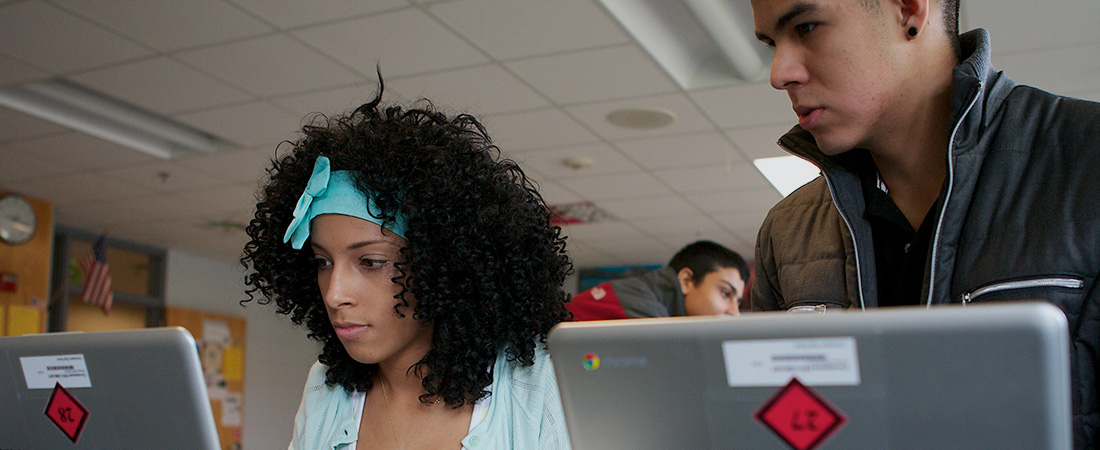
STEM skills—from computer programming to bioengineering—are the bedrock of the 21st century economy.
Not all students have a high-quality STEM education, which can limit their post-secondary learning and career options. EDC works to improve the quality, effectiveness, and equity of STEM learning and teaching, giving all students a solid foundation in computer science and creating pathways to STEM careers for students from underrepresented groups, students from low-income families, and English learners.
We develop STEM curricula, digital games, and apps that engage, excite, and challenge students, aiming to foster and use technology for robust STEM experiences. And through national resource centers and collaborative research, we guide STEM research and program design.
Learn about EDC’s work with Family STEM Communities.
Related Content
Tackling Inequity in the Mathematics Classroom
EDC’s Babette Moeller and Matt McLeod discuss their efforts to make mathematics teaching more equitable.
EDC Talks: STEM Education in Rural Schools
In this video, Pam Buffington discusses how to enrich STEM learning in rural communities.
A New Language for Mathematics
Young children often struggle to write down their mathematical ideas. Could computer programming be an easier language for them?
EDC Talks: Making Time for Family Math
What are some fun, easy activities that families can do to encourage math learning at home? (Hint: You are probably already doing some of them.)
Tapping, Swiping, and Learning Science
Research findings on The Cat in the Hat Knows a Lot About That!™ have implications for parents, educators, and educational media developers.
Projects
Resources
Here are a few of our resources on STEM. To see more, visit our Resources section.
Executive Summary of a report that examines The Cat in the Hat Knows a Lot About That!™, a PBS KIDS multi-platform media property based on “The Cat in the Hat’s Learning Library” book series by Random House and Dr. Seuss Enterprises.
This is the summary of a report that presents the results of a first-of-its-kind national survey of parents, who were asked about the types of early science educational activities they do with their young children.
This resource library contains reports, evaluations, and toolkits produced by Community for Advancing Discovery Research in Education (CADRE) partners and principal investigators with DR K–12 grant
This website provides an overview of a professional development program for middle grades mathematics teachers and links to selected resources for use in in-person or remote instr
This report surveys state-level efforts to improve access to K–12 computer science education opportunities in the United States.
This robust website includes video-based case studies of six girls as they investigate what it means to be a scientist or engineer.
This resource is designed to help K–8 teachers prepare their students to succeed in STEM learning in high school and thrive in STEM careers.
This report, published by EDC’s STEM Learning and Research Center (STELAR), examines issues of diversity, equity, and inclusion as they relate to the future of work.
This curriculum guide is designed as a tool to help teachers in autism inclusion schools facilitate an after-school or lunchtime “Maker Club.”
The Exploring Trees & Ponds Fall, Winter, and Spring Activities feature engaging investigations that bring middle school youth outdoors each season to explore the natural world using observation, digital photography, drawing, activity challenges, and scientific experiments.
